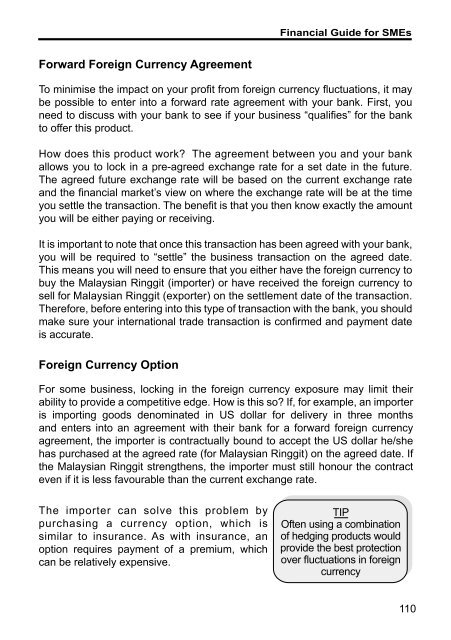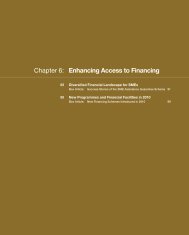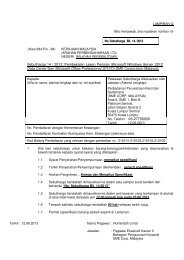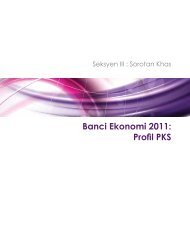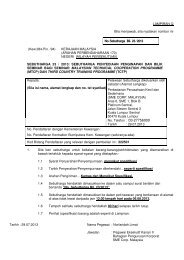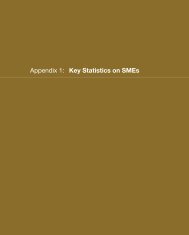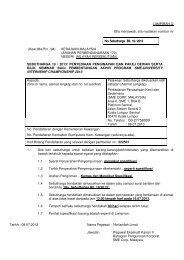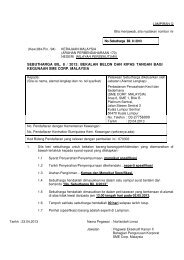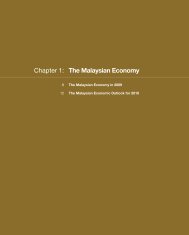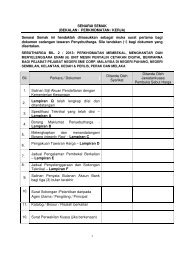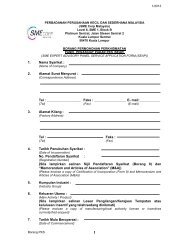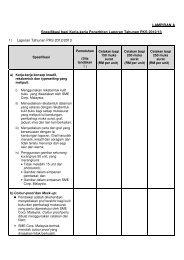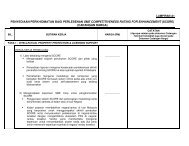Financial Guide for SMEs - SME Corporation Malaysia
Financial Guide for SMEs - SME Corporation Malaysia
Financial Guide for SMEs - SME Corporation Malaysia
You also want an ePaper? Increase the reach of your titles
YUMPU automatically turns print PDFs into web optimized ePapers that Google loves.
<strong>Financial</strong> <strong>Guide</strong> <strong>for</strong> <strong><strong>SME</strong>s</strong>Forward Foreign Currency AgreementTo minimise the impact on your profi t from <strong>for</strong>eign currency fl uctuations, it maybe possible to enter into a <strong>for</strong>ward rate agreement with your bank. First, youneed to discuss with your bank to see if your business “qualifi es” <strong>for</strong> the bankto offer this product.How does this product work? The agreement between you and your bankallows you to lock in a pre-agreed exchange rate <strong>for</strong> a set date in the future.The agreed future exchange rate will be based on the current exchange rateand the fi nancial market’s view on where the exchange rate will be at the timeyou settle the transaction. The benefi t is that you then know exactly the amountyou will be either paying or receiving.It is important to note that once this transaction has been agreed with your bank,you will be required to “settle” the business transaction on the agreed date.This means you will need to ensure that you either have the <strong>for</strong>eign currency tobuy the <strong>Malaysia</strong>n Ringgit (importer) or have received the <strong>for</strong>eign currency tosell <strong>for</strong> <strong>Malaysia</strong>n Ringgit (exporter) on the settlement date of the transaction.There<strong>for</strong>e, be<strong>for</strong>e entering into this type of transaction with the bank, you shouldmake sure your international trade transaction is confi rmed and payment dateis accurate.Foreign Currency OptionFor some business, locking in the <strong>for</strong>eign currency exposure may limit theirability to provide a competitive edge. How is this so? If, <strong>for</strong> example, an importeris importing goods denominated in US dollar <strong>for</strong> delivery in three monthsand enters into an agreement with their bank <strong>for</strong> a <strong>for</strong>ward <strong>for</strong>eign currencyagreement, the importer is contractually bound to accept the US dollar he/shehas purchased at the agreed rate (<strong>for</strong> <strong>Malaysia</strong>n Ringgit) on the agreed date. Ifthe <strong>Malaysia</strong>n Ringgit strengthens, the importer must still honour the contracteven if it is less favourable than the current exchange rate.The importer can solve this problem bypurchasing a currency option, which issimilar to insurance. As with insurance, anoption requires payment of a premium, whichcan be relatively expensive.TIPOften using a combinationof hedging products wouldprovide the best protectionover fluctuations in <strong>for</strong>eigncurrency110chapter 7-13 p79-181 Eng.indd 1108/15/11 5:02:59 PM


